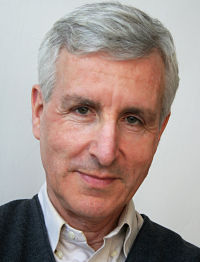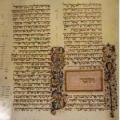170 - Gad Freudenthal on Jewish Philosophy and Science
Leading scholar of medieval Jewish thought Gad Freudenthal joins Peter in a concluding episode on Andalusian thought.
Themes:
• G. Freudenthal (ed.) Studies on Gersonides: a Fourteenth-Century Jewish Philosopher-Scientist (Leiden: 1992).
• G. Freudenthal, Science in the Medieval Hebrew and Arabic Traditions (Aldershot: 2005).
• G. Freudenthal, “Samuel Ibn Tibbon’s Avicennian Theory of an Eternal World,” Aleph: Historical Studies in Science and Judaism 8 (2008), 41-129.
• G. Freudenthal (ed.), Science in Medieval Jewish Cultures (Cambridge: 2011).
• G. Freudenthal, “Arabic into Hebrew. The Emergence of the Translation Movement in Twelfth-Century Provence and Jewish-Christian Polemic,” in D. Freidenreich and M. Goldstein (eds), Border Crossings: Interreligious Interaction and the Exchange of Ideas in the Islamic Middle Ages, (Philadelphia: 2011), 124-43.
Prof Freudenthal's page on academia.edu (with numerous articles to download)

Andalusia


 ..
..


Comments
Jewish knowledge of Arabic and Latin
I wonder how much the difference between Andalusian Jewish knowledge of Arabic and Christendom Jewish knowledge of Latin is simply down to Arabic being easier to learn for a native Hebrew or Aramaic speaker. Rather than being due to the differing treatment from the majority culture.
After all Hebrew and Arabic are both Afro-Asiatic languages and have a lot in common.
Add new comment